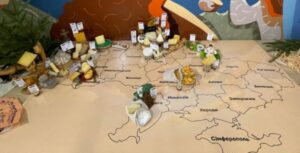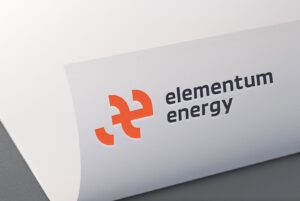
Sales of new buses in Ukraine in 2025 will grow by 13-15% compared to 2024 – to 940-950 units, according to Vadym Shkarupin, director of the Etalon Auto trading house.
“Although the year is not over yet, and we, like other companies, are still working, according to open data (excluding closed purchases), about 940-950 buses will be sold, compared to 831 buses last year,” he said at a press conference in Kyiv on Monday.
According to his data, Ataman buses manufactured by the Cherkasy Bus plant are in first place in sales this year with 370 units (market share of 39%), followed by ZAZ buses from the Zaporizhzhia Automobile Plant (UKRAVTO Group) with 240 units (24%), and third place goes to Etalon buses manufactured by the Chernihiv Automobile Plant, with 130 units (14%).
Next in the ranking are Bogdan buses (manufactured by BAS Motor in Lutsk) with 100 units (11%), and fifth place is taken by imported Isuzu buses (50 units or 6% of the market).
Another 50 buses are from other manufacturers: Turkish Temsa, Otocar, and two Elektron buses.
The largest number of buses sold were in the small class – 720 units (77%), 160 units (17%) were sold in the medium class, and 60 units (6.5%) in the large class.
Almost all buses sold were diesel-powered, with two electric buses sold.
“In terms of structure, 88-90% of sales were made using budget funds: for example, of the 940 buses sold, 720 were school buses. No more than 12% were sold to retailers, but this cannot even be called retail, because these were purchases made by companies for their own needs, to transport personnel. We had orders from Ukrnafta, from the Khmelnytskyi Nuclear Power Plant, and other manufacturers are also working in this direction. Meanwhile, retail is at a standstill today, there are no purchases,” Shkarupin said.
At the same time, he noted that Ukrainian companies have work thanks to the School Bus program.

Global investment in data centers, including M&A deals, reached a record $61 billion in the first 11 months of 2025, compared to $60.8 billion for the whole of 2024, CNBC reports, citing data from S&P Global. This was achieved with fewer transactions – 104 compared to 129 for the whole of last year. Most of the deals took place in the US, followed by the Asia-Pacific region (APAC).
Investments grew amid a “global construction boom,” S&P notes. In addition, the surge in debt financing contributed to the upturn.
According to the agency, debt issuance in the data center market in January-November amounted to $182 billion, compared to $92 billion for the whole of 2024. This included Google (owned by Alphabet Inc.) raising $29 billion, Amazon.com Inc. raising $15 billion, and Meta raising about $31 billion.
The trend toward increased borrowing has sparked investor concerns. Oracle Corp. shares fell 5% on Wednesday after media reports that Blue Owl had refused to invest in its Michigan data center amid Oracle’s growing debt. Oracle denied these reports, but after they appeared, investors began selling Broadcom, Nvidia, and Advanced Micro Devices shares, and the Nasdaq Composite fell by a maximum of about 1.81% in a month. A week earlier, Oracle shares fell 12% after the publication of reports showing an unexpected increase in its capital expenditures.
In November, investors also actively sold shares in technology companies, fearing an AI bubble.
Yuri Struta, an analyst at S&P Global Market Intelligence for the technology, media, and telecommunications (TMT) sectors, said his team believes market concerns about AI and Oracle are temporary.
According to experts, these fears are unlikely to have a significant impact on the construction of data center capacity and M&A in this market.
At the same time, the construction of new data centers may be temporarily limited by a shortage of energy sources, making existing centers more valuable, Struta says.
“In Europe, data center capacity is expected to be built more slowly than in other regions, but it is unclear whether this will lead to a surge in M&A activity amid a shortage of assets,” he said. Overall, the analyst expects such activity in the data center market to intensify in 2026.
“I wouldn’t be surprised if the already high valuations get even higher,” he told CNBC, noting that his team expects demand for AI applications to continue growing at a rapid pace next year.

Revolut, a neobank that officially announced the start of its operations in Ukraine in February this year, warned Ukrainian customers on Monday that it will be forced to close their accounts on February 22, 2026.
“In accordance with local regulations, we regret to inform you that we will no longer be able to provide our services to residents of Ukraine,” according to messages sent by the bank to users and reviewed by Interfax-Ukraine.
It is noted that for two months, it will still be possible to use accounts as usual, but after February 22 next year, it will only be possible to withdraw the balance from the account via an external bank transfer. In addition to withdrawing all balances, customers are advised to download account statements, as they may be needed for records or for other financial institutions in the future.
“Although we are currently unable to provide services to residents of Ukraine, we remain committed to making them available in the future and will communicate any changes if the situation changes,” the messages note.
As reported, on February 11, 2025, after a month and a half of beta testing, British fintech Revolut officially entered the Ukrainian market on the basis of a license issued by the European Central Bank to Revolut Bank UAB (Lithuania). At the same time, two weeks later, the National Bank of Ukraine (NBU) noted the need for the fintech to obtain a license to operate in Ukraine, which Revolut planned to obtain later.
In April, NBU Deputy Head Dmytro Oliynyk stated that the National Bank was interested in Revolut’s entry into the Ukrainian market, but within the framework of legislative and regulatory requirements, and was therefore in dialogue with it about obtaining a banking license. In an interview with NV Business, he said that, according to the regulator’s estimates, Ukrainians had opened up to 100,000 accounts with Revolut.
Monobank, the largest Ukrainian neobank and the second largest in terms of retail card customers in Ukraine, opposed Revolut’s entry into the Ukrainian market without obtaining a license.
Revolut was founded in 2015 in the UK and is headquartered in London.

The first cheese map of Ukraine was presented in Kyiv as a unique analytical tool that systematically reflects the current state of Ukrainian cheese production, as well as a printed guide to recognized domestic cheeses for 2021-2025, according to Deputy Minister of Economy, Environment, and Agriculture Taras Vysotsky.
“The map features 65 cheeses from different regions of Ukraine that have been recognized at national and international competitions. This is not just a visualization—it is a record of the development of the Ukrainian cheese industry in recent years,” he wrote on Facebook.
According to him, the cheese map demonstrates the regional diversity of Ukrainian cheeses, confirms the competitive quality of domestic producers, forms a holistic image of Ukraine as a cheese-producing country on the international arena, and becomes a benchmark for retail, HoReCa, media, and consumers.
“Ukrainian cheeses are now recognized at international competitions – this is already a trend, not just isolated successes. Our producers demonstrate quality that competes at the global level. It is important that projects such as the cheese map help to systematically shape Ukraine’s image as a cheese-producing country,” the deputy minister emphasized.
He also thanked the ProCheese and Ardis Group teams and partners for their work, which strengthens the agri-food sector and adds another important element to Ukraine’s brand.

Elementum Energy, a subsidiary of VR Capital Group operating in the renewable energy sector, plans to launch the 60 MW Dunay wind farm in the south of the Odesa region by the end of 2026, according to Olga Rybachuk, managing director of Elementum Energy and member of the board of the Ukrainian Wind Energy Association.
“We have already started construction and activated the turbine contract with Vestas. They are already being manufactured, all permits are in place, and the site is being completed. We hope that the wind farm will be connected to the grid by the end of 2026,” Rybachuk said at the UWEA’s final press conference at the Interfax-Ukraine agency on December 19.
In addition, according to her, the company has already reached the final stage of development of a 200 MW wind farm project in western Ukraine.
“This project should be ready for construction to begin in the first quarter of next year. We are very actively considering starting its construction in the second quarter of 2026,” Rybachuk said.
At the same time, she drew attention to the need for legislative regulation of one of the issues related to connecting new generation facilities to Ukrenergo substations, namely, providing investors with the opportunity to build the necessary facilities for such connection themselves.
“The construction and reconstruction of Ukrenergo substations for connection is an extremely long process, taking 2-3 years, which no project can afford. If we can independently answer to NEC for organizing the construction process, conducting our own tenders, and selecting contractors, then this project will fit into the construction timeframe of 1.5-2 years. This is what the power system needs, and it is very suitable in terms of resources and economic effects,” explained the managing director of Elementum Energy.
She stressed that making the appropriate amendments to the legislation is a critical issue.
“We very much hope that by 2028, the 200 MW wind farm will be supplying energy to Ukraine’s power grid,” Rybachuk emphasized.
As for the turbine manufacturer, she said that the company will most likely choose between Vestas and Nordex.
“In addition, we are working with the World Bank Group, IFC, which is very interested in financing Elementum projects and supports us in developing projects for sale on the open market, without any form of state support. The investment in this project is large, more than EUR 300 million. I agree that it cannot be done without financial partners. And, fortunately for us, we have a very powerful financial partner,” said the top manager of Elementum Energy.
Rybachuk also noted that the company plans to implement a pilot project for a 10 MW energy storage facility (ESF) with a capacity of 20 MWh, which it wants to build near one of its wind farms to test the joint operation of generation and ESF.
“We plan to see our ESS in operation by mid-2026. When we started this project, we were counting on our own funds, but soon the World Bank joined with a grant,” she said.
The company’s chosen operational model of WPP+ESS does not provide ancillary services to the transmission system operator, but rather involves working in time-shifted energy transfer modes, dealing with imbalances and constraints.
“In principle, storage systems should become an integral part of all new wind and solar projects because they minimize the specific component of renewable sources—imbalances,” the top manager believes.
At the same time, Rybachuk emphasized that the transmission system operator and distribution system operators limit renewable energy producers to 30-40% of their installed capacity at certain times.
“I think we cannot afford this, we cannot lose megawatts to restrictions,” she said, noting that resolving issues related to the operation of the UZE will also be a priority for the UEA in 2026.
According to her, the UZE has already been delivered to the site, and its assembly and connection will begin later this year.
As reported, at the same press conference, the chairman of the board of the Ukrainian Wind Energy Association (WEA), Andriy Konechenkov, noted that since the beginning of 2025, 324 MW of new wind power capacity has been built in Ukraine, while in the previous two years – between 2022 and the first quarter of 2025 – 248 MW of new wind power capacity was commissioned.
The country also has 534 MW of total installed capacity of energy storage systems (BESS).
Elementum Energy is an international investor in Ukraine’s renewable energy sector. The company manages a portfolio of solar and wind power plants with a total capacity of 636 MW and continues to develop new projects in the field of wind energy and energy storage systems.
In early December 2024, Elementum Energy announced that it had acquired a 200 MW wind power project in western Ukraine and intends to prepare it for construction in late 2025.

In January-November 2025, Ukraine exported 118.62 thousand tons of eggs in shells, which is 66.6% more than in the same period of 2024, according to the State Customs Service.
According to published statistics, in monetary terms, egg exports increased 2.7 times, to $183.37 million, compared to $67.14 million a year ago.
The top three buyers of Ukrainian eggs were Spain, which accounted for 17.9% of exports of this product, or $32.76 million in monetary terms, the United Kingdom – 14% and $25.69 million, respectively, and the Czech Republic – 11.6% and $21.19 million. Last year, Israel led the way in purchasing Ukrainian eggs, accounting for 14.8% of exports worth $9.91 million, followed by Poland with 11.9% worth $8 million and Italy with 11.1% worth $7.46 million.
Ukraine’s egg imports during the reporting period increased by 18.4% to 9.53 thousand tons, bringing in $54.36 million in monetary terms, which is 48.3% more than in the same period last year.
The leaders in egg supplies to Ukraine during the reporting period of 2025, as in 2024, were the Netherlands (41.4% and 46.3% of imported volumes, respectively), the Czech Republic (28.9% and 24.2%), and Germany (13.9% and 18.5%).
Exports of shelled eggs in the first 11 months of this year decreased by 5.3% to 6.64 thousand tons, while cash proceeds from their sale increased by 26.5% compared to the same period in 2024, to $38.54 million. The main buyers of domestic egg products were Italy (32.5%), Poland (29%), and Denmark (16.8%).
Imports of this product in January-November 2025 amounted to 58 tons, compared to 105 tons a year ago. Suppliers of shelled eggs this year included France (80.7%), Sweden (18.8%), and Poland (0.6%), while in 2024 they were France (85.2%), Sweden (10.9%), and Austria (3.7%).